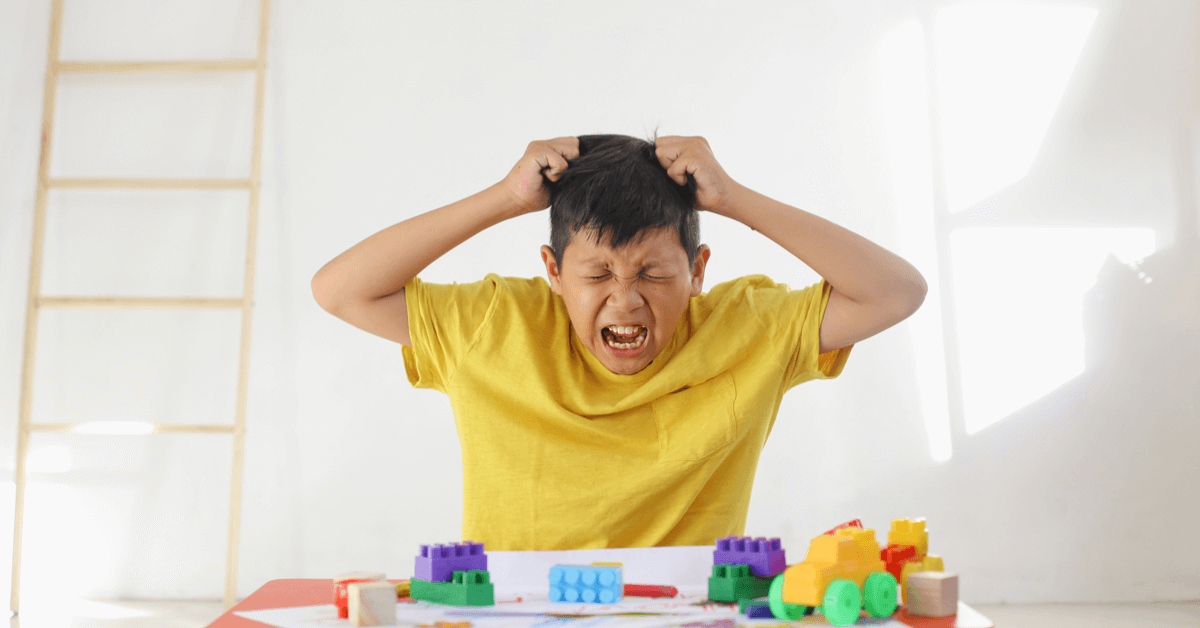A guide to your 'tweenager's' brain

The tweenage years are those between the ages of 9 until about 13. I'll be honest I had never heard the term 'Tweenager' before I attended an inspirational talk on the subject a few years ago, I thought they were big blue CBeebies characters like the Tweenies! But the term does neatly sum up that strange time when your child is between childhood but not quite a teenager, when puberty has started but you haven't quite headed into the adolescent years either.
Puberty - The Physical Changes are Only Half the Story
It's interesting that there is a lot of focus on the physical changes that happen at puberty, the growth spurts, watching our children's bodies changing. It's all too easy, as you see them develop into someone who starts resembling an adult, to think of them as small adults. However, we don't seem to give enough consideration to the MASSIVE changes that are happening to their brains at the same time. As parents and teachers, it is helpful to remind ourselves that although the young person in front of us may look more like an adult, it is far from the truth. Their brain has at least 10-15 years more of development to do!
What happens at puberty?
Puberty usually starts when a child reaches a certain BMI, it makes sense, it takes a lot of energy to grow, so once it is reached the brain starts releasing hormones which tell the body to change. However, the brain goes through a huge developmental change at the same time. The most similar leap, in terms of development, is when our children were 2-3. I'm sure you remember the eye rolls and comments, when your toddler is having a screaming match, about the terrible two's and how about those tricky "threenagers!" - alarmingly it's not that far from the truth. During puberty our children's brains have much more in common with 2/3year olds, who are also processing communication, being more independent and discovering their place in the world. However, the tantrums and defiance were in many cases a lot easier to deal with, than an 11-year-olds full blown melt down and I'm guessing there was a lot more understanding and support out there. It also probably helped that the small person doing all the yelling was cute and cuddly, not spotty and awkwar!
The first part of the brain that changes is the more primitive parts of the brain, the mammalian brain and the amygdala, which controls the fight, flight and freeze response. The brain has a safety-first mechanism so evolutionary speaking it makes sense that the emotional and primitive parts of the brain are the first to change and develop as they are primarily concerned with keeping you safe. The front of the brain which deals with more advanced concepts like critical thinking, risk and judgement are among the last to develop, usually well into our twenties.
What does that mean for my Tweenager and me?
Essentially it means that at this age, the brain is controlled by emotion, in the tween years they live in the emotional part of their brain. It's why often the littlest things can seem like the end of the world to our pre-teens.

Hang on I thought it was down to hormones
Hormones get a bad rap! They are doing the heavy lifting in terms of physical changes, but it is the brain development that is controlling our children. They become these emotional beings for a couple of years, whilst they are also trying to come to terms with and make sense of the physical changes also happening to them, which as a parent can be frustrating, exhausting and confusing.
How does this change effect my Tweenager
Sarah Ockham-Smith, in her book Between, identifies 3 key traits you tend to find at this age. To emphasise they are all completely normal, it is no reflection on you as a parent and they are important stages that your tweenager needs to go through in order to develop into a happy, healthy, young person.
1. Struggling to Control Emotions
As the tweenage brain is routed in emotions, it is normal that they would have extreme reactions to situations, they are not being difficult for the sake of it, it's just they are living in a heightened emotional state and struggle to think rationally. As adults we must step in and help them with that. If for example, your tweenager has lost something it can look and feel like the end of the world to them, they can't put things into perspective, so the adults in their life have to help them with this. No matter how frustrating they require our support in processing things rationally.
2. They tend to misinterpret things
I'm sure many parents who have been through this stage with their children know you can ask them something simple, like, "Please can you clear the table?" only to be greeted with complaints like "why are you shouting at me? You're always having a go!" much to your bafflement, you can say something along the lines of "calm down" only to find you are suddenly in the middle of an epic emotional breakdown.

Your tweeneager is learning and processing emotions, they can misinterpret and read in emotions or requests that simply aren't there, so we need to have a little patience. Try not to snap back at them, escalate and avoid the phrase calm down, which is likely to have the opposite effect. Though there's no denying that this can be very hard. It can be helpful count to 10 before responding to an emotional or irrational young person.
3. They Have an empathy Deficit
Their brain is doing a lot of processing and a lot of changing, the person they look at in the mirror doesn't look that familiar to them, they turn inwards, they focus on themselves and how they feel about people and situations and often seem oblivious to others. As adults, it is easy to interpret this as our children becoming selfish and self-centred - thus react accordingly.
This is normal, they need to focus on who they are and how they feel in order to understand themselves. So as parents it helps to keep judgements out of this stage, recognise it for what it is; an important stage in their development. Be careful to avoid telling them they are selfish and self-centred as this can easily become part of the story they tell themselves or can become part of their internal monologue and their beliefs, which can be tricky to unpick later.
Realistic Expectations
Just because your tweenager is starting to look like a young adult, their brain is closer to a 2-year-olds brain than it is to an adult, so we need to adjust our expectations accordingly. Physically they don't need you like they did when they were 2 but emotionally, they really need you. It is a period of big change in both your lives. Understanding the challenges that your child is facing is a great first step in helping them and guiding them safely through the teenage years and beyond.
Guest post by Erica Hodges.